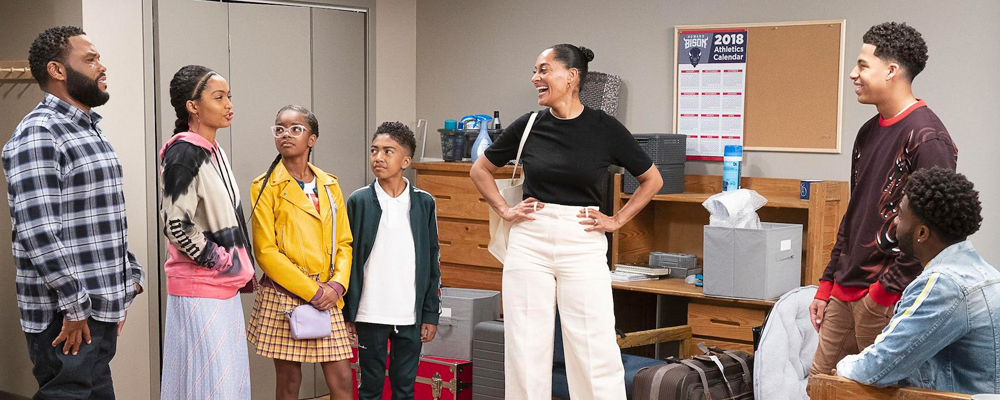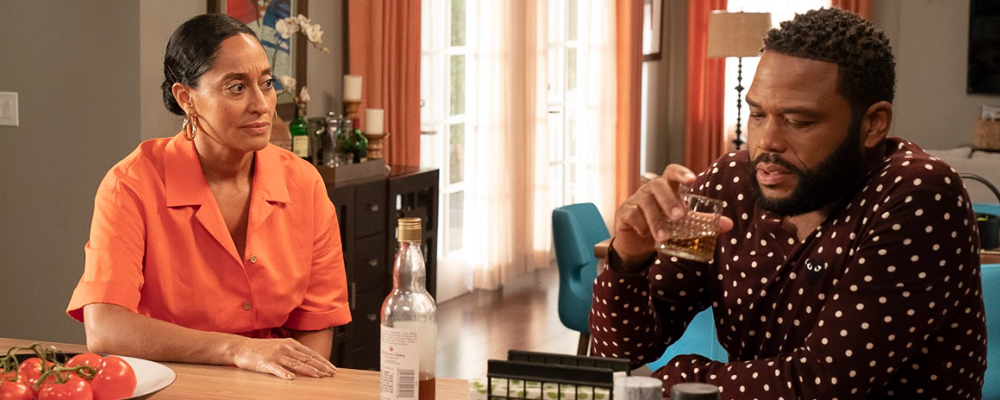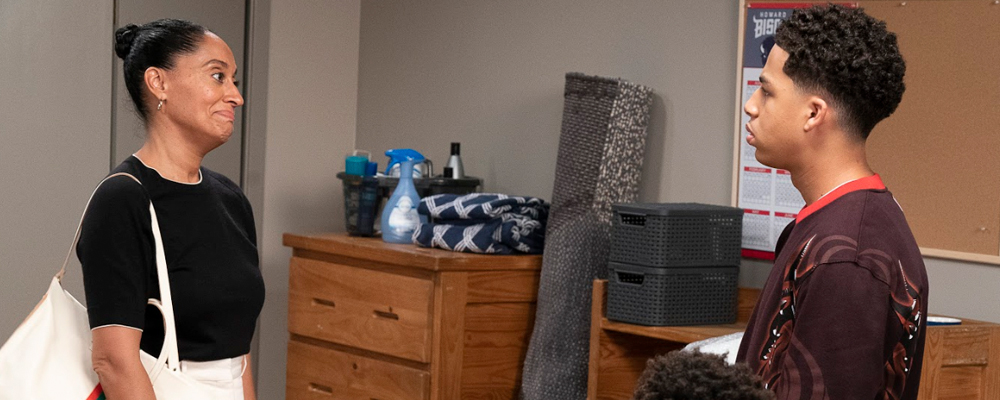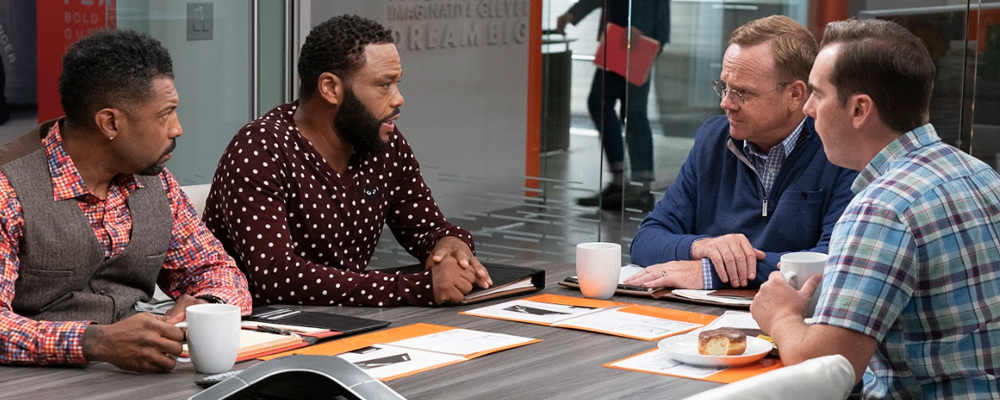Junior Feels Like Taking a Gap Year as ‘Black-ish’ Returns for Season 5
Alci Rengifo
College is all the rage in contemporary culture. These days once you graduate high school going off to a three-lettered institution is touted as the ultimate camp experience, albeit with a supposed “get a career” pass included. But what happens when you feel like taking a break? And how does that affect you if you’re a minority? This is the subject “Black-ish” takes on in its Season 5 premiere. Last season’s marital woes are forgotten. Now focus is placed on the Anderson kids growing up and changing. It also refreshingly looks at how middle class parents may chart the course of their kids’ life, only to have the kids start making their own choices.
The season premiere opens with the Andersons dropping off Junior (Marcus Scribner) at Howard University in Washington, D.C, which is the alma mater of his dad, Dre (Anthony Anderson). Dre and Junior’s mom, Bow (Tracee Ellis Ross) are proud Junior is following the correct path to success. But once they return home they find Junior in the kitchen. He booked a flight back and confesses he would like to take a gap year to think about what he actually would like to do. Dre and Bow are instantly thrown into a tailspin. It gets worse when at the office, Mr. Stevens (Peter Mackenzie) points out that due to institutional racism, African American men who don’t go to college or don’t go in right away have a higher chance of ending up homeless. Dre decides that no matter what, he’s going to make Junior get on a plane and head straight back to campus.
The times may be getting more tumultuous, but interestingly enough, “Black-ish” has decided to forgo the recent trend in sitcoms to become urgent political tomes about the latest headlines. Its social message remains clear by keeping it so homely. The season premiere poses an interesting question: Do minorities have the same luxuries when deciding what to do after the high school as whites? “Black-ish” has proved groundbreaking by depicting a middle class African American family successful and living comfortably by operating in the corporate, entertainment world. There are few if any recycled stereotypes in this show, so now it begins posing some subtle observations. Is middle class status truly an engine for being equal? Many kids take gap years, some parents encourage it. But the Andersons find themselves questioning Junior’s choice primarily because they are conscious of how much harder it is for an African American to rise out of a working class background. Bow even admits she’s worried about what this could to her own reputation (“my children go to college!”). Yet Pops (Laurence Fishburne) looks over from his newspaper and reminds Dre and Bow that Junior is growing up in a different world, under different circumstances. Whereas Dre reveals how going to college exposed him to the wider world, Pops reminds him that Junior already knows about it. In another scene Dre tries to slyly bully Junior into going back to school by guilt-tripping him over how much his parents have worked so he could have an easy ride. The episode is defiant and refuses to end in the traditional way. Junior doesn’t just pack his bags and go back to school, he gets his gap year and it is the first real sign for his parents that he is indeed, an independent adult. Maybe that’s part of the message, that the previous generation’s struggles are allowing the newer one to make this kind of decision.
Another story angle here about the kids growing up is a hilarious one involving the twins, Jack (Miles Brown) and Diane (Marsai Martin). When their grandmother, Rubi (Jenifer Lewis) notices the siblings still share a room she grabs Diane and warns that she’s soon going to be a young lady, and so it’s just weird that still shares a room with Jack. When she tells Jack he quickly dismisses it as just their grandmother not understanding they are twins and therefore linked. But when one of Jack’s friends sees Diane’s bra on the floor and tells Jack he’s lucky to share space with a girl, Jack starts to realize things he never pondered before. By the end of the episode he does get a new room, with Junior as he roomie. Slowly but surely, everything changes.
Families are the usual story vehicles for sitcoms. “Black-ish” opens a fifth season maintaining everything that makes it enjoyable but also intelligent and noteworthy as a piece of pop social commentary. Yes, this is a typical TV middle class family, but dealing with issues specific to the African American experience in the United States. In this season premiere, simply taking a break takes on deeper meanings. The universal touch is how with this new season, the seasons of life are taking new turns as everyone continues to grow up.
“Black-ish” season five premieres Oct. 16 and airs Tuesdays at 9 p.m. ET on ABC.




